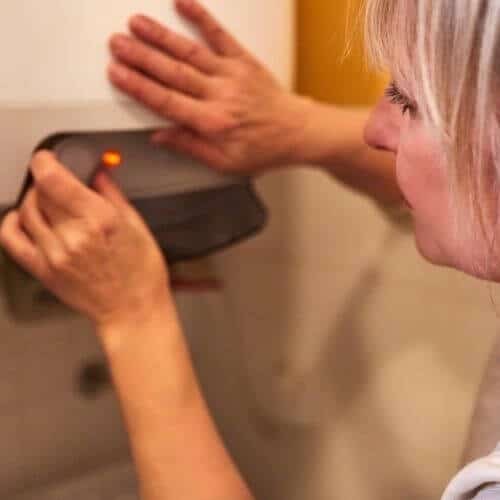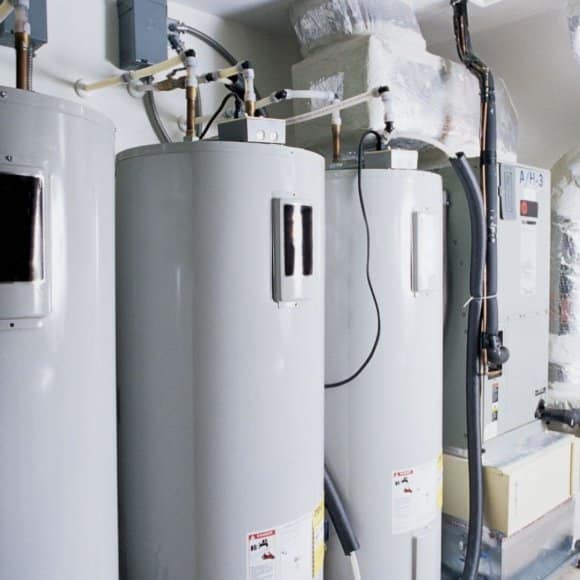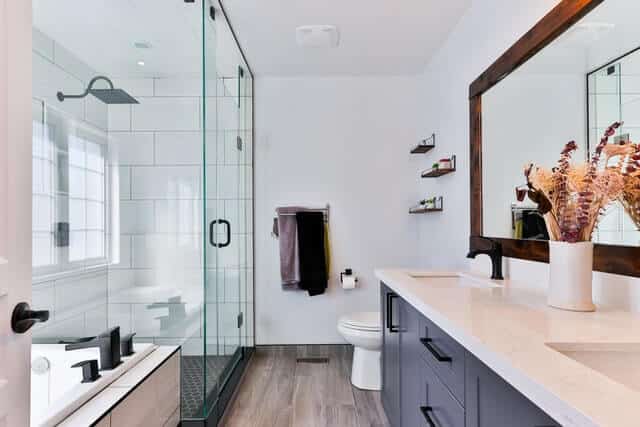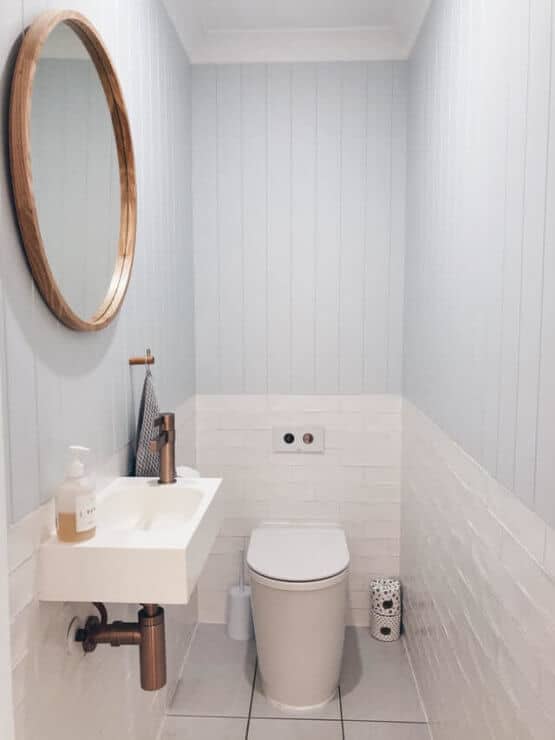Water heaters are a critical part of every household, and they account for a significant chunk of a typical household’s monthly expenses. So it begs the question, Rheem vs Reliance water heaters?
Although there are many factors to consider while making your decision, the most important is your chosen brand. Many businesses make water heaters and deciding which is ideal for you can be difficult. So here are the top selections for the finest water heater brand: Rheem and Reliance.
Rheem now offers a complete line of water heating systems, comprising solar, gas, electric, tankless, and heat pump options. Their tankless heaters are some of the most popular in the United States, and their storage heaters are noted for their dependability and ease of maintenance.
All Reliance products use cutting-edge technology, and the company is continually looking for new ways to improve. In addition, Reliance offers an extensive product line, so most individuals should be able to find the correct model for their needs, and this is a brand that many people should look into.
Introduction to Rheem

Rheem Manufacturing Company is a large water heater manufacturer based in the United States. The Rheem and Ruud brands have existed since 1925 and 1897, respectively. Ruud began by manufacturing gas-fired water heaters. Rheem started by making various items before becoming a renowned water heater maker in the 1940s. [1]
Since then, they’ve amalgamated, and Rheem/Ruud is now known for both water heaters and HVAC equipment. They also own several other brands, including Richmond, Eemax, and Ecosmart, and were previously known to produce a range of water heaters for GE.
Rheem offers warranty options for their regular 50-gallon gas water heater, with the most frequent ones ranging from 6 to 12-year components warranties [2]. The average Rheem warranty for tankless domestic water heaters is 15 years for the heater and 5 years for all other components on the units [3].
Rheem’s domestic tank-style gas heater boasts various features. They include an “improved flow” brass drain valve (rather than plastic), an intake air filter that doesn’t need constant cleaning as well as a TRD device that turns off both the air intake and the fuel in the event of flammable vapor buildup.
Related: Rheem vs Ruud
Introduction to Reliance Company
Reliance was founded in 1981 as a state-owned enterprise. In 2001, A.O. Smith purchased the business. However, the company still operated as a complete subsidiary even then. Reliance is regarded for providing several of the most ecologically friendly heaters on the market, although it does not have the same reputation as A.O. Smith.
To improve the quality of its water heaters, the company employs technology in its design and development phase. As a result, most buyers now understand that possessing a Reliance water heater entails dependability and high quality.
Reliance manufactures water pump containers and water heaters for commercial and residential use. A.O. Smith, Reliance’s parent business, had worldwide sales of $3 billion in 2017. However, water heaters from the company are only available at home renovations and state retailers.
Reliance now manufactures tankless water heaters, as well as electric and gas home tank water heaters. Energy Star certification is given to all 34 tankless models. They also have roughly 23 Energy Star-rated high-efficiency models. Additionally, the firm creates water heaters that prevent silt and lime buildup in the tank. It’s notably noticeable in the Reliance 909 and Sta-Kleen 1212 self-cleaning water heaters.
Related: Rheem vs AO Smith
Rheem vs Reliance Water Heaters – Comparison

Rheem manufactures high-quality, power-efficient water heaters at a reasonable cost. They are ideal for residential usage, providing dependable and long-lasting hot water solutions that are the best in their class. Electric, tankless, gas, and more options are available.
There are also a variety of versions to suit any requirement or budget. For example, the 80-gallon hybrid water heater, an Energy Star high-efficiency ‘smart tank,’ is a top-tier Rheem water heater for domestic use. It’s ideal for large families who require constant access to hot water. A high-end Rheem water heater will set you back roughly $2,200.
Rheem still makes good water heaters at a reasonable price point. For smaller homes and apartments, a Rheem 40-gallon performance water heater, for example, delivers enough hot water. Moreover, given the product’s quality and the brand name behind it, the pricing is reasonable. A low-end Rheem water heater will set you back at roughly $380.
Reliance Water Heaters
Electric water heaters from Reliance are available in various sizes and models, with warranties varying from the industry norm of 6 to 12 years. However, models with a 12-year extended warranty are the best choice, not only because of the corrosion protection but also because they have high-quality parts and features like a heavy-duty anode and a self-cleaning system.
Most devices, particularly the tall and typical electric ones, use two heating elements with a 0.9 efficiency and quicker recovery times. Water heaters with a heat pump and electric elements have an energy factor of above 2.3, rendering them ultra-efficient and Energy Star certified. These are called heat pumps or hybrids.
Reliance gas water heaters may run on natural or propane gas and, like the electric series, come in various sizes and styles, with tank-type versions holding hot water and tankless ones heating on-demand. Therefore, this evaluation only looks at the best of the Reliance gas types, which are mostly Energy Star rated and have an energy factor of at least 0.67, as well as units with increased water recovery for high-demand houses and low NOx emission.
Water heaters in the power, atmospheric, and direct power groups are the most efficient while condensing ones are the most efficient. The tankless Reliance water heaters use a heat exchanger instead of a storage tank, allowing for on-demand water heating and an infinite and constant hot water supply.
Reliance tankless units are relatively compact, making installation on the wall simple and space-saving. Its major advantage is its high-efficiency operation, particularly the condensing version, which comes with a 15-year warranty.
Related: Richmond vs Rheem Water Heater
Longevity of water heaters
The Reliance water heater is a well-known brand that comes in various sizes and styles. Moreover, the Reliance water heater is covered by an industry-standard warranty, which typically covers 6 to 12 years of use.
A six-year warranty covers the parts and tank of the Rheem water heater. You’ll also get a one-year warranty on any labor repair needed. The six-year contract primarily covers any technical issues that might arise during the product’s service.
It does not imply that the product will begin to fail after six years’ continued use. The life of a water heater can be prolonged to 8 to 10 years if it is properly maintained. The size and design of a Rheem water heater influence its warranty. Your large water heater will be covered by a 10- to 15-year warranty.
To extend the water heater’s life, it is advised that you maintain it regularly. You need to engage an expert or a company service guy for the maintenance work. The system would be kept intact and serve you for a long time if non-working parts were replaced and the water heater container was cleaned.
When a water heater is left unmaintained, the water heater performance suffers. The efficiency of the water heater will plummet. You’ll also notice an increase in the cost of maintaining the water heater on a monthly basis. The price could include an increase in the energy bill for the electric base water heater, increased gas consumption, or the use of a solar-powered water heater.
Choosing a water heater

It is critical to compare similar products while conducting your research on various brands. There are numerous water heaters available, and the choices might be confusing. The first lesson is to learn how your water heater is powered. Is it propane, natural gas, or electricity?
You most likely own a natural gas water heater if you have additional gas appliances in your home and reside in a DFW community.
The next factor to consider is the size of the heater you require? Most water heaters in the United States are 50 gallons in capacity. When extra capacity is needed, two 50-gallon water heaters are frequently put side by side or in various parts of the house.
A larger 75-gallon water heater is sometimes installed. Smaller 40-gallon water heaters are occasionally used as well (especially in tight areas like mechanical closets with HVAC units nearby).
After you’ve determined the size and power requirements, you’ll need to figure out what kind of venting you’ll need. The great majority of devices in our service region use an “atmospheric” venting mechanism. This means that they take combustion air from the air around the water heater and vent the exhaust gas to the outside of the home through metal vent piping.
There are several types of venting which are more widespread in other sections of the country. A fan that violently expels the exhaust gas is referred to as a “power-vent.” Both the burning air and the flue gases are pulled from the outside of the house through an adjacent outside wall in a “direct-vent” system.
Once you’ve assessed all of the factors, you’ll be able to reduce your alternatives considerably. The other brands will offer a variety of warranties, efficiency ratings, emissions regulations, and components like gas check valves, drain valves, and so on.
Alternative water heater options

Of course, you aren’t limited to the type of water heater you currently have. There are more choices available. However, every time you switch out one model for another, you’ll need to do something different in terms of plumbing to make it work.
A tankless water heater is a popular alternative to a gas tank-style water heater. Many consumers are drawn to tankless water heaters because they can provide unlimited hot water. However, this conversion necessitates a significant amount of additional labor. Gas piping will almost always need to be upgraded, venting will need to be modified, and a new platform/stand will be required (among other things).[8]
Replacing a domestic electric water heater with a hybrid or heat-pump electric water heater is another new alternative that is now accessible. These water heaters are still tank-style, combining classic heating components with heat pump technology.
As a result, the device is far more energy-efficient and uses significantly less electricity compared to its predecessor. However, more mechanical labor is involved because other changes are required during installation. A condensate drain line is frequently required, as well as rearranging the water pipes.
The Rheem Marathon electric water heater is another intriguing design on the market for a long time. The Rheem Marathon employs a plastic tank with titanium heating components Instead of a traditional steel tank to avoid the corrosion problems that carbon steel is prone to.
In the United States, these different designs are less common. Natural gas-powered water heaters are used in most suburban neighborhoods and elsewhere.
Because switching from a tank to a tankless requires more work, most homeowners stick with the same type and design for a new water heater.
Some of the communities further out, such as Celina, Prosper, Melissa, Anna, and others, use more electric water heaters, so depending on the situation, some of these solutions may make more sense.
Related: Stiebel Eltron vs Rheem
Summary
The Rheem and Reliance water heaters are energy efficient and come with modern features. However, it won’t be easy to discern which option is the best from the available options because various factors influence the decision-making process.
To begin, identify your requirements and choose what is appropriate for you. Then, to fine-tune your decision-making process, follow the instructions provided.
Read Next: Richmond vs Bradford White Water Heater

Michael Davis is a heating & plumbing expert who currently works as independent contractor in SC. He also writes for Plumbertip.
For almost 10 years he worked on various plumbing tasks across South Carolina.


